CONTACTAbout UsCAREER OPPORTUNITIESADVERTISE WITH USPRIVACY POLICYPRIVACY PREFERENCESTERMS OF USELEGAL NOTICE
© 2025 Equal Entertainment LLC.
All Rights reserved
All Rights reserved
By continuing to use our site, you agree to our Privacy Policy and Terms of Use.
We need your help
Your support makes The Advocate's original LGBTQ+ reporting possible. Become a member today to help us continue this work.
Your support makes The Advocate's original LGBTQ+ reporting possible. Become a member today to help us continue this work.
Alan Poul is one of the most successful, and well-liked, gay producers working in Hollywood today. He's helped bring to life unforgettable shows like Six Feet Under, My So-Called Life, and the Tales of the City movies, and now his work is being honored by Outfest, the organization that puts on the Los Angeles gay and lesbian film festival. Poul will be awarded with the annual Legacy Award at Wednesday's Outfest Legacy Awards, an event that serves as a fund-raiser for the Outfest Legacy Project for LGBT Film Preservation, a program that preserves LGBT images in film. Months before the January release of his theatrical directorial debut -- The Back-Up Plan, starring Jennifer Lopez -- Poul spoke to Advocate.com about the movies that molded him, and the legendary projects he's brought to fruition.
Advocate.com: How did you get involved with the Legacy Project?
Alan Poul: I have a long-standing involvement with Outfest. I was on the [Outfest] board for five years and have been a major donor ever since. When the previous executive director Stephen Gutwillig founded the Legacy Project as another way to serve the community other than the annual film festival, I thought it was a great idea. And the Legacy Award is given for overall support of Outfest and the community, as well as achievements in the field.
What was the first gay movie you saw that really resonated?
There were a lot of films from my youth that certainly affected me on a homoerotic level whether or not it was intended -- especially, the beach party movies and anything with Troy Donahue or Tab Hunter.
But the first real representation of same-sex sexual interaction was Sunday, Bloody Sunday. I was still quite young and I remember it was emblazoned on my eyeballs.
At that time, were you hunting for gay characters or themes in film?
Certainly as an adolescent I was searching for any signs that there were other people like me, as well as searching for images that would stimulate me sexually. Those images were hard to find at that time; it really wasn't until the '70s that they began to surface. Before Sunday, Bloody Sunday, I remember seeing the Bob Balaban [gay] scene in Midnight Cowboy, and that doesn't end well.
I grew up very hungry for any kind of images that would have reflected how I felt at the time. Another early film that left a huge impact on me was a film called If..., directed by Lindsay Anderson. I think it won the New York Film Critics Award; it was a look at life at a British boarding school and starts off very realistic and gradually veers into the fantastical and ends with an armed revolt with all the boys rising up and shooting all their teachers. It was a film of the '60s and a metaphor for rebellion, but among the various pairings that goes on among the kids is a same-sex pairing between an upperclassman and underclassman that is treated very gently. That completely knocked me out.
There also was a film by Frank Perry called Last Summer. It's very young Richard Thomas and Bruce Davison, with Barbara Hershey, and an actress named Catherine Burns. It was about this foursome of teenagers in the summer and two boys who share Barbara Hershey between them, and there's definitely a homoerotic element to that.
There's a scene at Fire Island, and they see a couple embracing in the dunes and it looks like a muscle man and a skinny woman. The couple rolls apart and you see that it's two men. You don't forget those things. The more that -- both in my career and in support of organizations like Outfest and the Legacy Project I can facilitate the creation and preservation of images that people in future generations can look to, the better.
You were the executive producer of Swingtown, a CBS drama from last
year that looked at suburban party animals in the '70s. Do you think it
would have lasted longer if it was on a premium cable network?
Unquestionably it would have been different. We got with Swingtown --
during the summer, which is low ebb for network viewership -- 5 or 6 million viewers a week. That is not enough to keep a
show alive on network, but on any basic or premium cable network [it] would make it a huge hit. I believe the show would have survived on cable. On the other hand, I don't feel that we were hindered by being on
network. As proud as I am of Swingtown,
on HBO or Showtme it wouldn't really have been groundbreaking. It would
have been good, but that level of sexual explicitness and mature
thematic material is a given on cable. You can imagine people watching the pay
cable version and saying, "Of course they're going to fuck the neighbors." But on
CBS, it's, "Oh my God, they're going to fuck the neighbors." I'm not
happy the show didn't last beyond one season, but I'm thrilled CBS put
it on the air.
Above: Tales of the City
What project do you look back at most fondly?
Six Feet Under was five years of my life, so it was the longest
continuous job I've ever had and clearly the best job I've ever had. It
was a golden age for HBO, a golden time for me. The relationship with
Alan Ball was the longest and most fulfilling creative relationship
I've ever had. We kept so much of the same crew and writers for the
entire run. It was an astonishingly stable and joyful workplace to go to.
The other is the Tales of the City series. Having been able to have and maintain that relationship with [Tales of the City author] Armistead Maupin, who remains a very close friend, and having nurtured that project from the beginning was wonderful. That's the other long-term achievement I'm most proud of. They're also saying when the first Tales aired in 1994, there was a huge watershed because there weren't characters on network TV showing affection towards each other in same-sex relationships. When the first series aired on PBS, there were death threats and we were condemned on floors of several state legislatures. If you look at how the bar has moved in the 15 years since, there's virtually nothing in the first Tales of the City miniseries that couldn't be shown on network TV. What was really shocking and controversial then was that it dared to treat same-sex relationships exactly the same as heterosexual relationships. Now, it doesn't seem outrageous and controversial, which makes me feel really good about where we've come to.
Nbroverman
From our Sponsors
Most Popular
Bizarre Epstein files reference to Trump, Putin, and oral sex with ‘Bubba’ draws scrutiny in Congress
November 14 2025 4:08 PM
True
Jeffrey Epstein’s brother says the ‘Bubba’ mentioned in Trump oral sex email is not Bill Clinton
November 16 2025 9:15 AM
True
Watch Now: Pride Today
Latest Stories
A heart filled with trans hate is how Marjorie Taylor Greene is choosing to be remembered
December 20 2025 10:00 AM
Trump's FDA sends warning letters to companies selling chest binders
December 19 2025 2:31 PM
Bowen Yang to leave SNL after Ariana Grande and Cher episode
December 19 2025 2:10 PM
Notorious anti-LGBTQ+ New York Archbishop Dolan retires — here are his worst moments
December 19 2025 1:27 PM
Sarah McBride knew some Democrats would betray trans people, so she lobbied Republicans
December 19 2025 12:55 PM
Creating Change Returns to Washington D.C. for 38th Convening for LGBTQ Advocacy
December 19 2025 12:22 PM
House passes bill banning Medicaid from covering gender-affirming care for youth
December 19 2025 11:05 AM
Health policy expert to RFK Jr.: You can't ban trans youth care this way
December 18 2025 5:37 PM
12 lesbian thrillers and mysteries to binge & where to watch them
December 18 2025 4:36 PM
Netflix's 'Boots' season 2 plot revealed by producer amid cancelation
December 18 2025 4:33 PM
Charlie Kirk's accused killer, Tyler Robinson, on LGBTQ+ issues: It's complicated
December 18 2025 4:04 PM
Sacramento man still in coma six weeks after suspected anti-LGBTQ+ hate crime
December 18 2025 1:17 PM
RFK Jr. and Dr. Oz announce sweeping measures to ban gender-affirming care for trans youth
December 18 2025 12:19 PM
True
Texas city will remove rainbow crosswalks under orders from Trump administration
December 18 2025 11:07 AM
Six key takeaways from Trump's speech to the nation, including 'transgender for everybody'
December 17 2025 10:51 PM
Marjorie Taylor Greene’s bill criminalizing gender-affirming care for minors passes with Democrats’ support
December 17 2025 6:47 PM
True
I didn’t just run the world’s major marathons. I changed them
December 17 2025 4:31 PM
Pam Bondi wants FBI to offer bounties for ‘radical gender ideology’ groups, leaked memo shows
December 17 2025 3:17 PM
Trending stories
Recommended Stories for You

Neal Broverman
Neal Broverman is the Editorial Director, Print of Pride Media, publishers of The Advocate, Out, Out Traveler, and Plus, spending more than 20 years in journalism. He indulges his interest in transportation and urban planning with regular contributions to Los Angeles magazine, and his work has also appeared in the Los Angeles Times and USA Today. He lives in the City of Angels with his husband, children, and their chiweenie.
Neal Broverman is the Editorial Director, Print of Pride Media, publishers of The Advocate, Out, Out Traveler, and Plus, spending more than 20 years in journalism. He indulges his interest in transportation and urban planning with regular contributions to Los Angeles magazine, and his work has also appeared in the Los Angeles Times and USA Today. He lives in the City of Angels with his husband, children, and their chiweenie.






































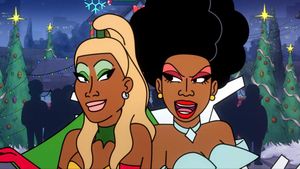


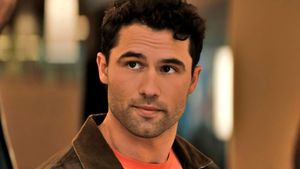



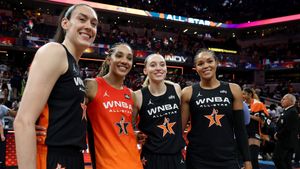

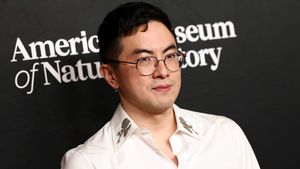

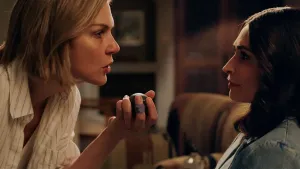


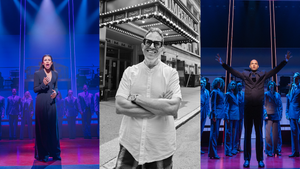









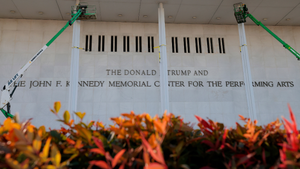



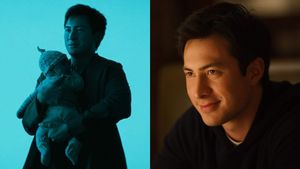

Charlie Kirk DID say stoning gay people was the 'perfect law' — and these other heinous quotes